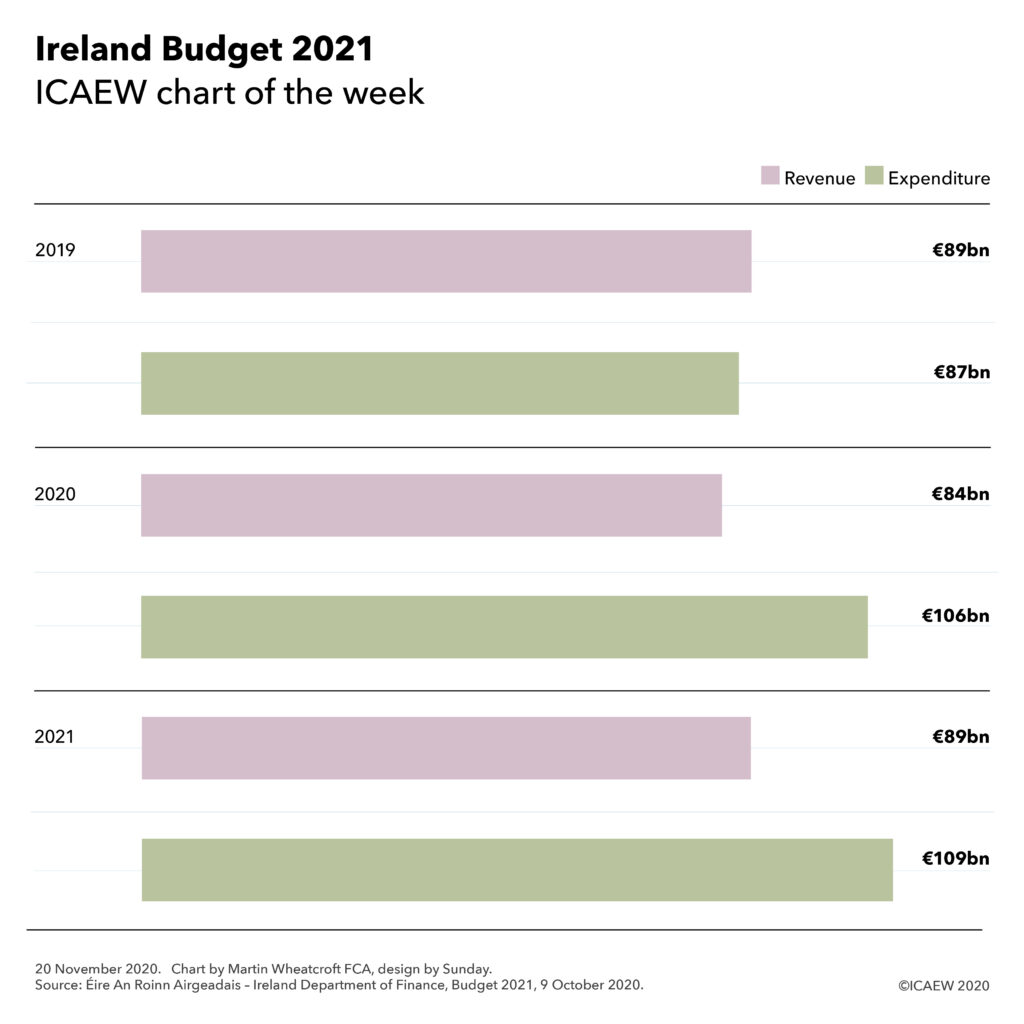20 November 2020: The #icaewchartoftheweek takes a look at the Irish Government’s fiscal plans for 2021 and how it plans to tackle the twin headwinds of COVID and Brexit.

The Irish Government held its Budget 2021 announcement last month, setting out how the coronavirus pandemic has damaged the public finances in 2020 and how it plans to help the economy recover in 2021.
There was a fiscal surplus of €2bn in 2019 with general government revenue of €89bn exceeding expenditure of €87bn, but the pandemic has squeezed revenues (expected to fall to €84bn in 2020) and increased spending (expected to increase to €106bn), resulting in an expected shortfall of €22bn this year. This is equivalent to 6.2% of GDP or 10.7% of Gross National Income (GNI).
General government revenues are forecast to recover to €89bn in 2021, well below the level they would have been without the pandemic. Although much of the emergency spending incurred in 2020 will not be repeated, the Irish Government still plans to increase total spending in 2021 to €109bn. This reflects social payments continuing to run at a higher level (€32bn in 2019, €39bn in 2020 and €38bn in 2021) and greater capital investment (€10bn, €12bn and €12bn), but mainly reflects extensive Brexit-related spending to soften the anticipated adverse economic impacts of increased trade frictions with the UK from 1 January 2021, as well as a €3bn COVID recovery fund intended to help the economy recover from the pandemic.
As a consequence, the fiscal deficit in 2021 is forecast to be €20bn, 5.7% of GDP and 9.8% of GNI.
General government debt is expected to increase from €204bn at the end of 2019 to €219bn in December 2020 and €239bn in December 2021. This is equivalent to 57%, 63% and 67% of GDP which may not appear to be that high, but with a much wider gap between GDP and GNI than most countries, the debt-GNI ratios of 96%, 108% and 115% are much more of a concern.
Fortunately, interest costs in 2021 are expected to be around €1bn lower despite the significant increase in debt, reflecting the extremely low interest rates available to Ireland as a member of the Eurozone.
The uncertainties surrounding the Irish economy, the pandemic and Brexit mean that Ireland’s Department of Finance decided to publish a one-year economic and fiscal forecast this year instead of the normal five years. They will be hoping for clarity to emerge over the coming year!